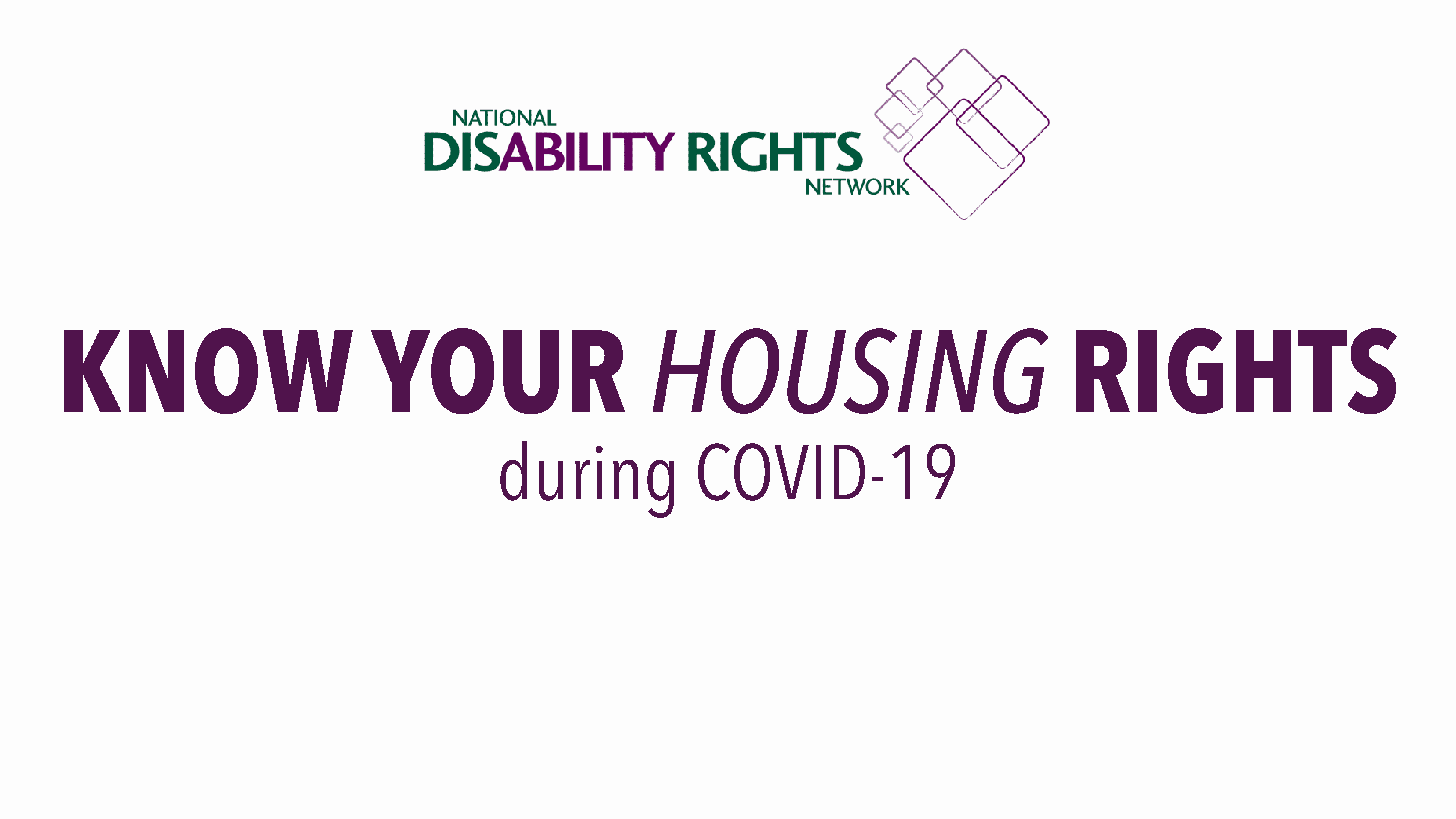The COVID-19 pandemic is impacting every community in the nation. Shuttering schools and workplaces, slowing public transportation, and delaying community-based services. In this series of videos, the National Disability Rights Network explains what your rights are and what you can do if you believe your rights are being violated. We hope this series will help to strengthen self-advocacy, address racial inequities, and protect the rights/lives of people with disabilities. Videos on a wide variety of COVID related topics will be released within the coming weeks.
Know your housing rights during the Coronavirus pandemic! Whether you’re a renter or homeowner, you have rights and options that offer additional support. Check out this informative message from Rachel Cohen-Miller, Supervising Attorney of the Housing, Transportation & Disaster Team at Disability Rights Texas.
- If you need to break a lease so you are able to function better, ask your landlord, in writing, for an accommodation to let you out of your lease early without having to pay any fees or penalties and explain why you need to be let out of your lease early.
- Physical Health: If COVID-19 poses a significant risk to you or someone you take care of’s health, you may need to ask your landlord to change their policies to make sure you, or someone you take care of, does not get COVID-19. Also, reach out to your landlord (in writing) and explain the situation if you need more time to move.
- Your landlord or Homeowner’s Associations should not treat you differently because they think you have COVID-19. For example, you can’t be evicted or forced to stay in your home or somewhere else because your landlord or homeowners association thinks you have COVID 19.
- Advocate for yourself:
- Document, Document, Document ! when you are asking your landlord for an accommodation, do it in writing. E-mail works. If your landlord says no or gives your problems, ask again in writing for an accommodation. This time give them a note from someone that knows your situation that explains why you need the accommodation.
- If you are unable to resolve the situation, you can promptly file a complaint with the United States Department of Housing and Urban Development.
- Ask for help from your state Protection & Advocacy system (P&A) if you are still facing discrimination or if your accommodation has been denied.
- The CARES Act is the federal law granting adults $1200 and an additional $500 per child. This law may also keep you from being evicted for non-payment of rent or from being foreclosed on for not paying your mortgage.
- If you rent a property through a federally funded housing program or have a federally backed mortgage, your landlord may not file to evict you for non-payment of rent or fees for 120 days starting March 27, 2020. Click here to figure out if your property is covered.
- There may also be additional protections by your city, county, or state. Check with local housing officials to see if they have enacted protections for foreclosure that either give more protection than the CARES Act or that last longer.
- If you own a home that is federally backed (which is most single-family homes) you are protected from foreclosure until May 17, 2020, and you are entitled to loan forbearance for 180 days if you have a financial hardship caused by COVID-19 such as losing your job. This period can also be extended an extra 180 days if you need it. This means if you have lost your job or income because of COVID-19, you may be able to work with your mortgage company so that your home is not taken from you just because you are unable to pay your mortgage right now. Click here to determine if your mortgage is covered.
<< Return to Know Your Rights during COVID-19 Series main page

